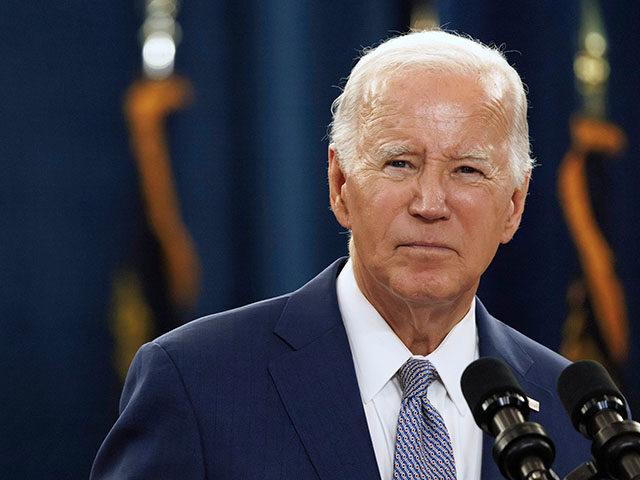Biden’s FTC Moves to Protect Apple, Google, Meta, and Microsoft with a Ban on Noncompetes
The Biden administration’s declaration that it will treat almost all noncompete provisions in employment agreements as illegal should be seen for what it is: sectional warfare and a giveaway to his wealthy supporters in Silicon Valley.
The Biden appointees Federal Trade Commission voted Tuesday to ban noncompete agreements for virtually all employees, from the hourly wage workers to the most senior company executives. The vote was strictly partisan, with the commission’s three Democrats favoring the ban and the two Republicans opposing it.
When the Federal Trade Commission (FTC) first began mulling a rule against noncompetes, many expected that it would be structured to cover only lower paid workers or at least stop at the c-suite.
Most of the political rhetoric against the provisions has been directed at the fact that in recent years they’ve been sometimes applied to some people who work as custodial staff, or sandwich shop workers, or security guards. For these workers, noncompetes are basically irrational products of over-lawyering—even if they are rarely enforced and possibly unenforceable in most circumstances. If the FTC banned only these noncompetes, there would likely be few objections and no negative economic impact.
But Biden’s FTC decided to adopt a maximalist stance on noncompetes, barring them even for senior executives. You might not think that Tim Cook needs protection from the FTC against Apple unfairly asking him to wait several months before leaving to run a different tech giant, but the FTC does.
Actually, Cook was already protected from the burden of a noncompete provision in his employment agreement by a law that has been on the books in California for 150 years. The Golden State has long had one of the strictest rules against the provisions, and last year Gov. Gavin Newsom signed a pair of additional laws further cracking down on noncompetes.
This is one reason that Silicon Valley is not up in arms about the FTC rule. It has been operating under a bar on noncompete agreements from the start. Microsoft, although based in Washington, said last year that it would voluntarily stop enforcing noncompete agreements. Which means that by adopting the rule, the FTC was not risking politically alienating the big Biden tech sector donors.
Californication of Noncompetes Is a War on Texas, Michigan, and Pennsylvania
To the contrary, the FTC is delivering a huge gift to Silicon Valley and Microsoft because the rule amounts to a Californication of the rest of the country. States hoping to attract innovative companies with laws that are more permissive when it comes to contractual noncompetes will now be barred from doing so by the power of the federal government.
Texas is probably the most prominent victim of the FTC’s Californication rule. Noncompetes are generally enforceable under Texas law, so companies that consider the provisions important had reason to locate there instead of neighboring California. The same is true for Pennsylvania and Michigan, states that also would very much like to break California’s hold on tech start-ups and have the higher education firepower to make that a realistic goal. Wisconsin is slightly stricter about noncompetes, but it too is far more permissive than California—or it was until the FTC declared this week that this is now illegal.
In other words, the FTC’s new rule against noncompetes is itself anticompetitive. Its effect—a cynic could even say its goal—is to make it harder for the 47 states that allow contractual noncompetes to compete with California for jobs, investment, and innovation. It also makes it harder for smaller tech companies to protect themselves and their intellectual property from predation by Apple, Meta, Google, and Microsoft.
The Vaporware of a Noncompete Ban
The fact that California has long banned noncompetes is also a reason why the alleged benefits—thousands of more patents, an explosion of innovation, lots and lots of jobs—of a nationwide ban touted by the FTC are likely to turn out to be vaporware. Employees seeking to escape the grip of a noncompete to found their own companies already had the option of moving to a state that would not enforce the provision. And states that believed they were losing out on innovative companies could change their laws.
The nationwide ban is more likely to stymie innovation and investment by preventing states from experimenting with different legal treatments of noncompetes and banning companies from seeking the right legal regime for their business. We’ve had terrific success in developing technology in this country with a federalist approach to contractual noncompetes. Adopting a one-size-fits all model is a risky experiment, at best.
The silver lining here is that the FTC’s rule is held up by the slimmest legal thread. It’s very likely that the federal courts will put the rule on hold and eventually strike it down as overreaching the commission’s statutory authority. If the federal government is going to ban noncompetes, it likely requires actual legislation rather than agency fiat.
That likely does not matter to Biden and his apparatchiks in the federal regulatory bureaucracy. The goal of keeping Donald Trump out of the White House overrides any concerns about the long-term economic effects of their policies or their legality. They think the noncompete ban is a political winner—and that’s all that counts for this administration.

COMMENTS
Please let us know if you're having issues with commenting.